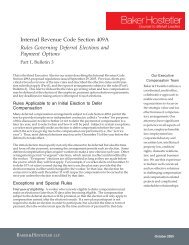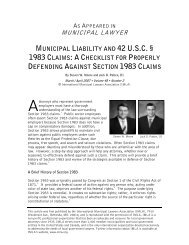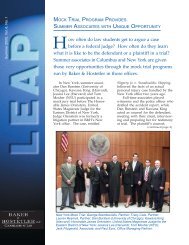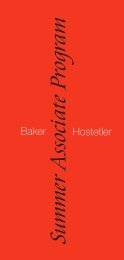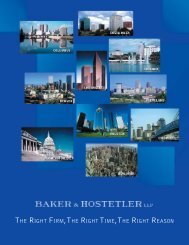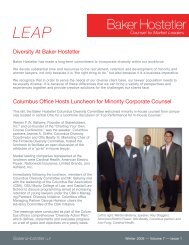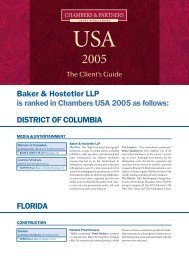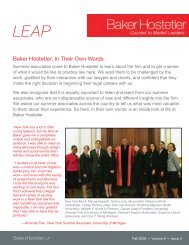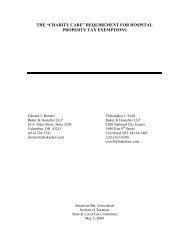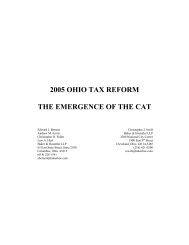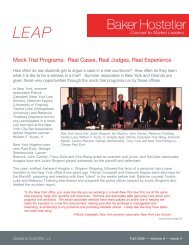Prejudgment Remedies in Texas - Doug D'Arche - Back to Main Page
Prejudgment Remedies in Texas - Doug D'Arche - Back to Main Page
Prejudgment Remedies in Texas - Doug D'Arche - Back to Main Page
- No tags were found...
Create successful ePaper yourself
Turn your PDF publications into a flip-book with our unique Google optimized e-Paper software.
action or transaction covered by the conflict of <strong>in</strong>terest rules of the appropriate governmentagency. Tex. Discipl<strong>in</strong>ary R. Prof. Conduct .10(f)(1), (2), 3.05(c)(1). A matter is pend<strong>in</strong>g beforea particular Court when that Court has been selected <strong>to</strong> determ<strong>in</strong>e the matter or when it isreasonably foreseeable that the Court will be selected <strong>to</strong> determ<strong>in</strong>e the matter. Tex. Discipl<strong>in</strong>aryR. Prof. Conduct 3.05(c)(2).The comments <strong>to</strong> Rule 3.05 recognize that there are certa<strong>in</strong> types of adjudica<strong>to</strong>ryproceed<strong>in</strong>gs that have permitted pend<strong>in</strong>g issues <strong>to</strong> be discussed ex parte with the Court. Rule3.05 recognizes that there may be <strong>in</strong>stances where an ex parte communication is permitted bythe rules. The rule is deal<strong>in</strong>g with attachment (Tex. R. Civ. P. 592), garnishment (Tex. R. Civ.P. 658), temporary restra<strong>in</strong><strong>in</strong>g orders (Tex. R. Civ. P. 680), sequestrations (Tex. R. Civ. P. 696),all specifically contemplate that these remedies may be obta<strong>in</strong>ed ex parte.Because the rules authoriz<strong>in</strong>g the use of these pre-judgment remedies permit the use ofex parte communications, it would appear that communications with the Court <strong>in</strong> connectionwith obta<strong>in</strong><strong>in</strong>g these extraord<strong>in</strong>ary remedies is not a violation of Rule 3.05. These proceed<strong>in</strong>gsappear <strong>to</strong> fall under the exception <strong>in</strong> Rule 3.05(b) that permit ex parte communications "asotherwise permitted by law…"Notwithstand<strong>in</strong>g the fact that these communications are permitted, counsel is advised <strong>to</strong>be very cautions <strong>in</strong> connection with such proceed<strong>in</strong>gs. All at<strong>to</strong>rneys have a duty of candor<strong>to</strong>ward the Court. Tex. Discipl<strong>in</strong>ary R. Prof. Conduct 3.03. This rule prohibits an at<strong>to</strong>rney fromknow<strong>in</strong>gly mak<strong>in</strong>g a statement of material fact <strong>to</strong> a Court. Cohn v. Commission for LawyerDiscipl<strong>in</strong>e, 979 S.W.2d 694 (Tex. App.—Hous<strong>to</strong>n [14 th Dist.] 1998, no writ).<strong>Page</strong> 36 of 36



